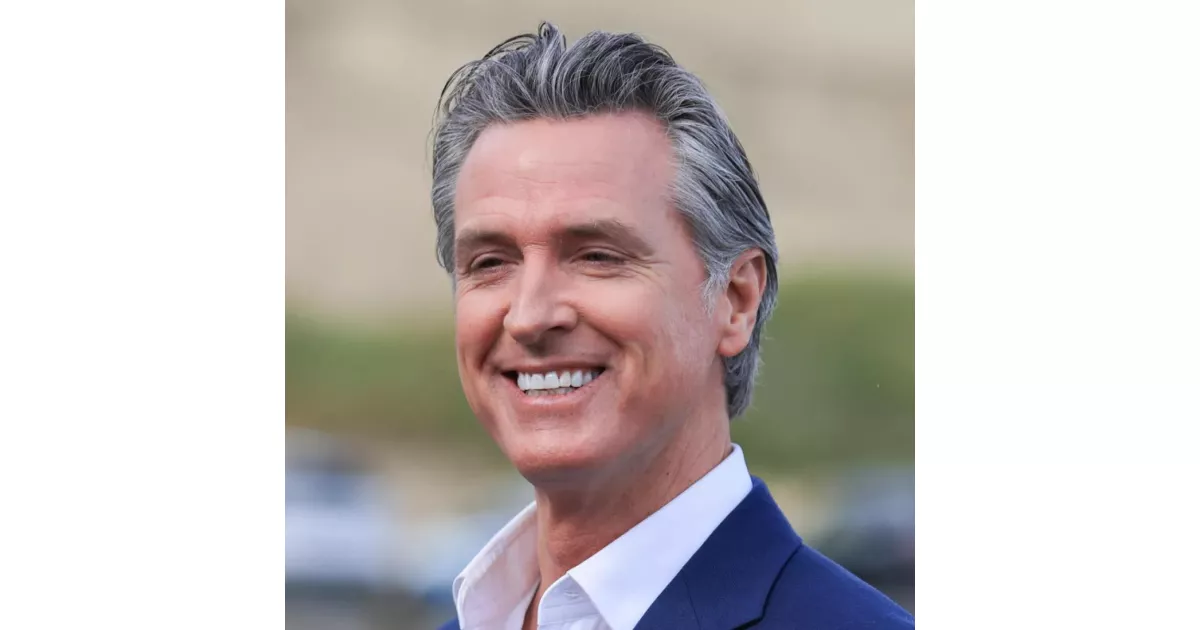Discover the career path of Gavin Newsom, from the first major opportunity to industry-changing achievements.
Gavin Newsom is an American politician and businessman currently serving as the 40th governor of California since 2019. As a member of the Democratic Party, his political career includes serving as the 49th lieutenant governor of California from 2011 to 2019. Prior to that, he was the 42nd mayor of San Francisco, holding the office from 2004 to 2011.
May 14, 1991: Created PlumpJack Associates L.P.
On May 14, 1991, Gavin Newsom and his investors created the company PlumpJack Associates L.P.
1992: Started PlumpJack Winery
In 1992, Gavin Newsom started the PlumpJack Winery with financial help from Gordon Getty.
1993: Opened PlumpJack Cafe
In 1993, the PlumpJack Cafe Partners L.P. opened the PlumpJack Café on Fillmore Street.
1994: Opened PlumpJack Squaw Valley Inn
In 1994, Gavin Newsom and his investors opened the PlumpJack Squaw Valley Inn with a PlumpJack Café.
1995: Opened Winery in Napa Valley and Balboa Cafe Bar and Grill
In 1995, Gavin Newsom and his investors opened a winery in Napa Valley and the Balboa Café Bar and Grill.
1995: Volunteered for Willie Brown's Mayoral Campaign
In 1995, Gavin Newsom volunteered for Willie Brown's successful campaign for mayor, hosting a fundraiser at his PlumpJack Café.
1996: Opened PlumpJack Development Fund L.P.
In 1996, Gavin Newsom and his investors opened the PlumpJack Development Fund L.P.
1996: Appointed to Parking and Traffic Commission
In 1996, Willie Brown appointed Gavin Newsom to a vacant seat on the Parking and Traffic Commission.
1997: Appointed to San Francisco Board of Supervisors
In 1997, Willie Brown appointed Gavin Newsom to the San Francisco Board of Supervisors seat vacated by Kevin Shelley.
1998: Opened MatrixFillmore Bar
In 1998, Gavin Newsom and his investors opened the MatrixFillmore Bar.
1998: Elected to the Board
In 1998, Gavin Newsom was elected to a full four-year term to the Board of Supervisors.
1998: Elected to the Board of Supervisors
In 1998, Gavin Newsom was first elected to the Board of Supervisors.
1998: Endorsed by Rescue Muni
In his 1998 reelection campaign, Gavin Newsom was one of two supervisors endorsed by Rescue Muni, a transit riders group.
November 1999: Voters Approved Ballot Measure
In November 1999, a version of the ballot measure sponsored by Gavin Newsom from Rescue Muni was approved by voters.
1999: Opened PlumpJack Wines Shop
In 1999, Gavin Newsom and his investors opened a PlumpJack Wines shop, Noe Valley branch.
2000: Opened PlumpJackSport Retail Clothing store and second Balboa Cafe
In 2000, Gavin Newsom and his investors opened PlumpJackSport retail clothing and a second Balboa Café at Squaw Valley.
2000: Reelected to Represent Second District
In 2000, Gavin Newsom was reelected to represent the second district, and he paid $500 to the San Francisco Republican Party to appear on the party's endorsement slate.
2001: Annual Income
From 1996 to 2001, Gavin Newsom's annual income was greater than $429,000.
2002: Reelected Supervisor
In 2002, Gavin Newsom was reelected as a Supervisor.
2002: Business Holdings Valued
In 2002, Gavin Newsom's business holdings were valued at more than $6.9 million.
November 4, 2003: Placed First in General Election
On November 4, 2003, Gavin Newsom placed first in the general election with 41.9% of the vote.
2003: Care Not Cash helped Mayorship
Care Not Cash, passed in 2003, was a voter initiative that raised Gavin Newsom's political profile and provided the volunteers, donors, and campaign staff that helped make him a leading contender for the mayorship.
January 8, 2004: Sworn in as Mayor of San Francisco
On January 8, 2004, Gavin Newsom was sworn in as mayor of San Francisco and called for unity and promised to address public schools, potholes and affordable housing.
July 1, 2004: Care Not Cash Implementation
On July 1, 2004, the implementation of Care Not Cash began, an initiative sponsored by Gavin Newsom. As a result, 5,000 homeless individuals were provided with permanent shelter in San Francisco.
August 2004: Supreme Court Annulment of Same-Sex Marriages
In August 2004, the Supreme Court of California annulled the same-sex marriages that Gavin Newsom had authorized as they conflicted with existing state law.
October 27, 2004: Support for Hotel Workers Strike
On October 27, 2004, Gavin Newsom joined UNITE HERE union members on a picket line in front of the Westin St. Francis Hotel during a strike by hotel workers. He pledged that San Francisco would boycott the hotels by not sponsoring city events at them until a contract was agreed upon with the workers.
2004: Sold Shares of San Francisco Businesses
In 2004, Gavin Newsom sold his share of his San Francisco businesses when he became mayor.
January 31, 2007: Alex Tourk's Resignation
On January 31, 2007, Alex Tourk, Gavin Newsom's campaign manager and former chief of staff, confronted him after learning about Newsom's affair with Tourk's wife, Ruby Rippey-Tourk, which occurred in 2005. Tourk immediately resigned.
August 10, 2007: Filing Deadline Passed
On August 10, 2007, the filing deadline passed, and San Francisco's discussion shifted to Gavin Newsom's second term.
August 2007: Re-election bid
In August 2007, it was declared by the San Francisco Chronicle that Newsom faced no serious threat to his re-election bid, having raised $1.6 million for his reelection campaign by early August.
2007: Business Income
In 2007, Gavin Newsom earned between $141,000 and $251,000 from his business interests.
2007: Reelected Mayor of San Francisco
In 2007, Gavin Newsom was reelected as mayor of San Francisco.
2008: City Audit of Care Not Cash
In 2008, a city audit evaluated the Care Not Cash program as largely successful for lowering average cash payments and the number of people receiving cash payments.
April 21, 2009: Announcement of Candidacy for Governor
On April 21, 2009, Gavin Newsom officially announced his candidacy for governor of California in the 2010 election.
February 2010: Filed Paperwork for Lieutenant Governor
In February 2010, Gavin Newsom initiated the formal process to run for Lieutenant Governor by filing the necessary paperwork, signaling his intent to seek the office.
2010: Elected Lieutenant Governor of California
In 2010, Gavin Newsom was elected lieutenant governor of California.
2010: Democratic Gubernatorial Nominee Victory
In 2010, the Democratic gubernatorial nominee won with at least 60% of the vote, a feat not repeated until Newsom's re-election in 2022.
January 10, 2011: Sworn in as Lieutenant Governor
On January 10, 2011, Gavin Newsom was officially sworn in as the Lieutenant Governor of California, serving alongside Governor Jerry Brown.
2011: Became Lieutenant Governor of California
In 2011, Gavin Newsom became the 49th lieutenant governor of California.
2011: Jennifer Siebel Newsom Launches The Representation Project
In 2011, Jennifer Siebel Newsom launched her nonprofit organization, The Representation Project. She has received $2.3 million in salary from the nonprofit since its launch.
May 2012: Launch of The Gavin Newsom Show and Sacramento Criticism
In May 2012, Gavin Newsom began hosting "The Gavin Newsom Show" on Current TV. During the same month, he faced criticism for describing Sacramento as "dull" and stating he was only there once a week, expressing a lack of reasons to be there otherwise.
2012: Hosted "The Gavin Newsom Show"
From 2012 to 2013, Gavin Newsom hosted "The Gavin Newsom Show".
February 7, 2013: Release of Citizenville
On February 7, 2013, Gavin Newsom released his first book, titled "Citizenville: How to Take the Town Square Digital and Reinvent Government." The book explores the Gov 2.0 movement across the nation.
2013: Wrote "Citizenville"
In 2013, Gavin Newsom wrote the book "Citizenville", which focuses on using digital tools for democratic change.
November 4, 2014: Re-election as Lieutenant Governor
On November 4, 2014, Gavin Newsom was re-elected as the Lieutenant Governor, securing 57.2% of the vote against Republican Ron Nehring.
2014: Reelected Lieutenant Governor
In 2014, Gavin Newsom was reelected as lieutenant governor of California.
2014: California and Israel Signed a Memorandum of Understanding
In 2014, Newsom touted the memorandum of understanding that California and Israel inked together, highlighting Israel's technological successes such as drip irrigation and wastewater recycling as valuable assets for California.
January 5, 2015: Start of Second Term as Lieutenant Governor
On January 5, 2015, Gavin Newsom began his second term as the Lieutenant Governor of California.
February 11, 2015: Opening Campaign Account for Governor
On February 11, 2015, Gavin Newsom announced that he was opening a campaign account for governor in the 2018 elections, enabling him to raise funds for a potential campaign to succeed Jerry Brown as governor of California.
July 2015: Release of Marijuana Policy Report
In July 2015, the Blue Ribbon Commission on Marijuana Policy, convened by Gavin Newsom and the ACLU of California, released its final report. It contained recommendations to regulate marijuana, intended to inform a legalization measure on the November 2016 ballot.
November 2015: Call for California College Promise
In November 2015, Gavin Newsom, along with Eloy Oakley, called for the creation of the California College Promise, which would establish partnerships between public schools, universities, employers, and offer free community college education.
December 2015: Call to Reclassify Computer Science Courses
In December 2015, Gavin Newsom urged the University of California to reclassify computer science courses as core academic classes to encourage more high schools to offer computer science curricula.
June 2016: Securing Funds for Promise Programs
In June 2016, Gavin Newsom played a role in securing $15 million in the state budget to provide support for the creation of promise programs throughout California.
September 2016: Legislation for Computer Science Education
In September 2016, legislation sponsored by Gavin Newsom and signed by Governor Brown began the planning process for expanding computer science education to all state students, starting as early as kindergarten.
November 2016: Support for Proposition 64
In November 2016, Gavin Newsom supported Proposition 64, a measure that legalized cannabis use and cultivation for California residents aged 21 or older.
2016: Voters Upheld Capital Punishment and Agreed to Move Condemned Inmates
In 2016, California voters upheld capital punishment and agreed to move the condemned to other prisons.
2016: Proponent of Proposition 63
In 2016, as lieutenant governor, Gavin Newsom was the official proponent of Proposition 63. This ballot measure mandated background checks and California Department of Justice authorization for ammunition purchases, among other gun control regulations.
February 24, 2017: Letter to Trump Administration on Cannabis Enforcement
On February 24, 2017, Gavin Newsom responded to pro-enforcement statements by White House Press Secretary Sean Spicer by sending a letter to Attorney General Jeff Sessions and President Donald Trump, urging them not to increase federal enforcement against recreational cannabis firms in California.
June 5, 2018: Finished Top Two in Primary
On June 5, 2018, Gavin Newsom secured a spot in the top two during the nonpartisan primary election.
2018: Pledge to Tighten Oversight of Fracking and Oil Extraction
During his 2018 campaign, Gavin Newsom pledged to tighten state oversight of fracking and oil extraction in California.
2018: Gubernatorial Election
In 2018, Gavin Newsom won the gubernatorial election with a larger margin than his re-election in 2022.
2018: Expedited Review of Pardon Requests
In 2018, a California law mandated that pardon requests from people facing deportation receive expedited review by the state Board of Parole Hearings.
January 7, 2019: Inauguration as Governor
On January 7, 2019, Gavin Newsom was officially sworn in as the Governor of California.
January 2019: Newsom Threatens to Withhold Infrastructure Funding
In late January 2019, Gavin Newsom threatened to withhold state funding for infrastructure from communities that failed to alleviate California's housing shortage. He also announced that he would sue Huntington Beach for preventing the construction of affordable housing.
February 2019: Newsom Announces Postponement of High-Speed Rail Project
In February 2019, Gavin Newsom announced during his State of the State address that work would continue on the Central Valley segment of the high-speed rail project, but the rest of the system would be indefinitely postponed due to cost overruns and delays. This decision created tension with the State Building and Construction Trades Council of California.
March 13, 2019: Moratorium on the Death Penalty
On March 13, 2019, Gavin Newsom declared a moratorium on the death penalty in California, preventing any executions while he remained governor. This action also led to the withdrawal of the state's lethal injection protocol and the closure of the execution chamber at San Quentin State Prison.
May 2019: Pardons Granted
In May 2019, Gavin Newsom pardoned seven formerly incarcerated people, including two Cambodian refugees facing deportation, as part of his first acts of clemency as governor.
June 2019: Newsom Apologizes for Genocide of Native Americans
In June 2019, Gavin Newsom apologized to California's Native American community for the genocide of Native Americans approved and abetted by the California state government in the 19th century.
June 2019: Expansion of Medi-Cal to Undocumented Young Adults
In June 2019, the budget passed by Gavin Newsom expanded eligibility for Medi-Cal from solely undocumented minor children to undocumented young adults from ages 19 to 25.
August 2019: Newsom Apologizes for Ethnic Studies Curriculum Draft
In August 2019, Gavin Newsom unconditionally apologized to California's Jewish community for a controversial ethnic studies draft curriculum that omitted the experience of Jews in America and sometimes criticized Israel.
September 2019: Signing of the Wildlife Protection Act
In September 2019, Gavin Newsom signed the Wildlife Protection Act, which prohibited commercial and recreational fur trapping in California.
October 2019: Legislation Prohibiting Fur Products and Animal Cruelty
In October 2019, Gavin Newsom signed legislation prohibiting the manufacture and sale of new fur products in California, banning bobcat hunting, ending the use of most animals in circuses, and strengthening Proposition 6's prohibition on horse meat and horse slaughter.
November 2019: Moratorium on Hydraulic Fracturing and Steam-Injected Oil Drilling
In November 2019, Gavin Newsom imposed a moratorium on approving new hydraulic fracturing and steam-injected oil drilling projects in California. This moratorium was in effect until an independent panel of scientists reviewed the permits for these projects.
November 2019: Pardons Granted to Avoid Deportation
In November 2019, Gavin Newsom pardoned three men who were attempting to avoid being deported to Cambodia or Vietnam. They had separately committed crimes when they were each 19 years old.
December 2019: Parole Granted to Cambodian Refugee
In December 2019, Gavin Newsom granted parole to a Cambodian refugee who had been held in a California prison due to a murder case, though the refugee was later turned over for possible deportation upon release.
2019: Start of Newsom's Veto Record Tracking
From 2019 to 2021, Gavin Newsom vetoed 12.7% of the bills passed by the legislature on average. The veto rate declined over these three legislative sessions.
2019: Became 40th Governor of California
In 2019, Gavin Newsom became the 40th governor of California.
2019: Attendance at the UN Climate Action Summit
In 2019, Gavin Newsom participated in the UN Climate Action Summit. He highlighted California's role as a climate leader, crediting the efforts of previous governors.
2019: Newsom Signs California Assembly Bill 5
In 2019, Gavin Newsom signed California Assembly Bill 5.
2019: Combating Antisemitism
In 2019, Gavin Newsom took steps to combat antisemitism by allocating $15 million for synagogue security, $6 million for the Holocaust Museum LA, and $23.5 million for Jewish summer camps affected by wildfires.
2019: Calls for National Background Checks on Ammunition Purchases
In 2019, following the mass shooting in Virginia Beach, Gavin Newsom advocated for nationwide background checks on people purchasing ammunition. He also responded to the Gilroy Garlic Festival shooting by expressing support for the Second Amendment while calling for national cooperation in controlling "weapons of goddamned mass destruction".
February 2020: Lawsuit Over Environmental Rollbacks
In February 2020, the Newsom administration sued federal agencies over the rollbacks to protect imperiled fish in the Sacramento–San Joaquin River Delta in 2019.
April 2020: Resumption of Hydraulic Fracturing Permit Issuance
In April 2020, state agencies in California resumed issuing new hydraulic fracturing permits after a moratorium that was put in place in November 2019.
August 2020: Address to the 2020 Democratic National Convention
In August 2020, Gavin Newsom addressed the 2020 Democratic National Convention. During his speech, he discussed climate change and the prevalence of wildfires in California.
September 2020: Signing of Transgender Inmate Bill
In September 2020, Gavin Newsom signed a bill into law allowing California transgender inmates to be placed in prisons that correspond with their gender identity, subject to management and security concerns. This law later faced a lawsuit from the Women's Liberation Front.
September 23, 2020: Executive Order to Phase Out Gasoline-Powered Vehicles
On September 23, 2020, Gavin Newsom signed an executive order mandating that all new passenger vehicles sold in California be zero-emission by 2035 and phasing out the sales of gasoline-powered vehicles. Bills signed in September focused on environmental issues, including a commission to study lithium extraction around the Salton Sea.
2020: Increased Use of Executive Orders
During the 2020 legislative session, Gavin Newsom utilized a higher than normal number of executive orders.
2020: Signing of California Act to Save Lives and California Racial Justice Act
In 2020, Gavin Newsom signed the California Act to Save Lives and California Racial Justice Act.
2020: Appointments Following Elections and Confirmations
In 2020, after Kamala Harris was elected Vice President, Gavin Newsom appointed Alex Padilla as California's junior U.S. Senator. Subsequently, he appointed Shirley Weber as Secretary of State and Rob Bonta as Attorney General, following Xavier Becerra's confirmation as U.S. Secretary of Health and Human Services.
April 2021: Commitment to End Gas Lease Sales and Oil Extraction
In April 2021, Gavin Newsom committed to ending the sale of gas leases by 2024 and terminating oil extraction by 2045.
June 10, 2021: Criticism of Judge Roger Benitez
On June 10, 2021, Gavin Newsom criticized federal Judge Roger Benitez, calling him "a stone cold ideologue" and "a wholly owned subsidiary of the gun lobby of the National Rifle Association" after Benitez struck down California's ban on assault weapons. Newsom also proposed legislation to empower private citizens to enforce the ban after the Supreme Court declined to strike down the Texas Heartbeat Act.
September 14, 2021: Recall Election Result
On September 14, 2021, the recall election against Gavin Newsom was held. The majority, approximately 62%, voted against recalling Newsom, allowing him to remain in office.
September 2021: Signing of Police Reform Legislation
In September 2021, Gavin Newsom signed legislation raising the minimum age to become a police officer from 18 to 21, restricting the use of tear gas, banning the employment of officers after misconduct or crimes, and requiring officers to intervene when witnessing excessive force.
October 2021: Proposal for Fossil Fuel Extraction Buffer Zone
In October 2021, Gavin Newsom proposed a 3,200-foot (980 m) buffer zone between new fossil fuel extraction sites and densely populated areas.
December 2021: Announcement of California as Abortion Sanctuary
In December 2021, Gavin Newsom announced plans for California to become a "sanctuary" for abortion, potentially offering financial support for procedures, travel, and lodging for out-of-state abortion seekers.
2021: End of Newsom's Initial Veto Record Tracking
From 2019 to 2021, Gavin Newsom vetoed 12.7% of the bills passed by the legislature on average. The rate declined over the course of the three legislative sessions. Newsom's vetoes included bills to allow ranked-choice voting, require an ethnic studies class as a high school graduation requirement, regulate AI, and reduce penalties for jaywalking.
2021: Newsom Signs Bills to Ease Housing Zoning Regulations
In 2021, Gavin Newsom signed a pair of bills into law that made zoning regulations for housing less restrictive, allowing construction of duplexes and fourplexes in lots previously zoned for single-family homes. He also signed a bill expediting environmental review for new multifamily developments worth at least $15,000,000.
2021: Expansion of Medi-Cal to Undocumented Residents Over 50
In 2021, Gavin Newsom signed legislation expanding Medi-Cal eligibility to undocumented residents over age 50.
2021: Decline in Support for Capital Punishment
In 2021, a poll suggested a decline in support for capital punishment among California voters.
2021: Newsom's vulnerable 2021 recall
In 2021, the year Newsom was recalled
January 2022: Direction to Dismantle Death Row
In January 2022, Gavin Newsom directed the state to begin dismantling its death row in San Quentin, with the intention of transforming it into a "space for rehabilitation programs," as condemned inmates were to be moved to other prisons with maximum-security facilities.
March 2022: Bill Requiring Full Abortion Coverage by Private Health Insurance
In March 2022, Gavin Newsom signed a bill mandating that private health insurance plans in California fully cover abortion procedures, eliminating co-pays and deductibles while increasing insurance premiums.
June 30, 2022: State Budget Expansion of Medi-Cal Eligibility
On June 30, 2022, Gavin Newsom signed a $307.9 billion state budget that included a provision to make all low-income adults eligible for the state's Medicaid program (Medi-Cal) by 2024, regardless of their immigration status, making California the first U.S. state to guarantee healthcare to all low-income undocumented immigrants, at an estimated cost of $2.7 billion per year.
July 6, 2022: Newsom Signs Senate Bill 184
On July 6, 2022, Gavin Newsom signed Senate Bill 184, establishing the Office of Health Care Affordability with the goal of containing health care costs through data-informed policies and enforceable cost targets.
September 2022: Proposal for Windfall Profits Tax on Oil Companies
In September 2022, Gavin Newsom proposed a windfall profits tax and penalty for oil companies operating in California, after gas prices exceeded $6 per gallon.
September 2022: California Becomes Sanctuary State for Transgender Youth
In September 2022, Gavin Newsom signed Senate Bill 107 into law, making California the first sanctuary state for transgender youth.
September 2022: Legislation banning animal testing of pesticides
In September 2022, Gavin Newsom signed legislation that banned animal testing of pesticides and other chemical substances on dogs and cats.
September 2022: Newsom Denies Presidential Run in 2024
In September 2022, Gavin Newsom stated he would not run for president in 2024, citing his "vulnerable" 2021 recall.
2022: Newsom Opposes NIMBYism
In 2022, Gavin Newsom declared that "NIMBYism is destroying the state."
2022: Newsom Signs Housing Bills into Law
In 2022, Gavin Newsom signed 39 bills into law to address California's housing crisis, including reforms to land use. These bills eliminate parking minimums near transit, allow housing on commercial lots with affordable housing percentages, and permit market-rate housing on some commercial lots. Newsom warned local governments about obstructing housing developments.
2022: Signing of Gun Control Bills
In 2022, Gavin Newsom signed multiple gun control bills passed by the California Legislature. These included Assembly Bill 1621, which restricts privately made firearms, and Assembly Bill 2571, which prohibits the marketing of firearms like the JR-15 to children. On July 22, Newsom signed Senate Bill 1327, enabling private citizens to sue those involved in illegal firearm activities.
2022: Newsom Vetoes Senate Bill 57
In 2022, Gavin Newsom vetoed Senate Bill 57, which aimed to authorize jurisdictions to approve supervised injection sites.
2022: Re-election to Second Term
In 2022, Gavin Newsom was re-elected to a second term as governor, defeating Republican state senator Brian Dahle with 59.2% of the vote. This margin of victory was smaller than in 2018, marking the first time since 2010 that the Democratic gubernatorial nominee did not win at least 60% of the vote.
2022: Newsom signs Affordable Housing Legislation
In 2022, Newsom signed the Abundant and Affordable Homes Near Transit Act, the Affordable Housing on Faith and Higher Education Lands Act, and California Assembly Bill 2097.
February 2023: Organization of Reproductive Freedom Alliance
In February 2023, Gavin Newsom organized the Reproductive Freedom Alliance, a coalition of state governors who support abortion and reproductive rights.
March 2023: Response to Walgreens' Abortion Pill Decision
In March 2023, after Walgreens announced it would not dispense abortion pills in 21 states where it is illegal, Gavin Newsom stated that California would cease doing business with Walgreens and accused the company of bowing to "right-wing bullies". He also indicated he wanted to cancel Walgreens' $54 million contract with the California state prison system.
March 28, 2023: Signing of Law Authorizing Penalties for Oil Company Price Gouging
On March 28, 2023, Gavin Newsom signed a law that empowers the California Energy Commission to set a profit threshold for petroleum companies, above which they would face financial penalties. The law also mandates additional profit data reporting and establishes a division within the California Energy Commission to investigate gasoline price gouging.
April 2023: The Hill Publishes Article on Inevitability of Newsom Presidential Run
In April 2023, The Hill published an article by journalist Sharon Udasin discussing the inevitability of a Gavin Newsom presidential run.
April 25, 2023: Newsom Endorses Biden's Reelection Campaign
On April 25, 2023, Gavin Newsom endorsed President Biden's reelection campaign after informing White House staff that he would not challenge Biden in the Democratic primaries.
May 2023: Schwarzenegger Comments on Newsom Presidential Run
In May 2023, Schwarzenegger stated that it was a "no-brainer" that Newsom would someday run for president.
June 8, 2023: Proposal for 28th Amendment to the U.S. Constitution
On June 8, 2023, Gavin Newsom proposed a 28th amendment to the U.S. Constitution to raise the age to buy firearms to 21, institute universal background checks for gun purchases, mandate waiting periods, and ban assault weapons for civilians. Law professor Erwin Chemerinsky criticized this idea due to the potential risks of a constitutional convention.
June 2023: Poll Shows 22% of California Voters Want Newsom to Run for President
According to a June 2023 poll by NewsNation, 22% of California voters wanted Gavin Newsom to enter the 2024 presidential election.
June 2023: Newsom Issues Pride Month Proclamation and Fines School District
In June 2023, Gavin Newsom issued an official state proclamation for Pride Month, fined a school district $1.5 million for rejecting a curriculum including a biography of gay rights leader Harvey Milk, and signed a bill prohibiting schools from banning textbooks based on LGBT references.
September 2023: Appointment of Laphonza Butler to the U.S. Senate
In September 2023, following the death of Dianne Feinstein, Gavin Newsom appointed Laphonza Butler to the U.S. Senate, fulfilling his earlier promise to appoint a Black woman to the seat.
October 2023: Newsom Visits China
In October 2023, Gavin Newsom made a week-long trip to China, starting in Hong Kong and including stops in Beijing, Guangdong, Jiangsu, and Shanghai. He met with President Xi Jinping to discuss climate change, trade relations, and the response to fentanyl production. The visit drew both praise and criticism, with some raising concerns about human rights issues.
October 2023: Newsom Vetoes Bill to Ban Caste Discrimination
In October 2023, Gavin Newsom vetoed a bill that would have banned discrimination based on caste, citing existing protections against discrimination based on other characteristics. The veto was applauded by Hindu rights organizations but criticized by advocates for marginalized castes.
October 2023: Newsom Vetoes Insulin Co-Pay Cap Bill
In October 2023, Gavin Newsom vetoed a bill that would have capped co-pays for insulin at $35.
October 2023: Newsom Vetoes Bills on Unemployment Insurance and Layoff Protections
In October 2023, Gavin Newsom vetoed a bill to provide unemployment insurance to striking workers and another bill to expand layoff protections for employees and contract workers, citing concerns about the state's unemployment system and employer burdens.
October 2023: Newsom Vetoes Bills Expanding Housing Assistance
In October 2023, Gavin Newsom vetoed several bills aimed at expanding access to housing assistance. These included a bill to repurpose unused state-owned land for affordable housing, another to expand eligibility for state housing assistance, and a third to mandate that Medi-Cal cover the cost of housing assistance.
October 20, 2023: Newsom Visits Israel During Gaza War
On October 20, 2023, Gavin Newsom visited Israel to express solidarity during the Gaza war. He met with Prime Minister Benjamin Netanyahu, President Isaac Herzog, other Israeli officials, and survivors of the October 7 attacks.
November 2023: Newsom Debates DeSantis
In November 2023, Gavin Newsom and Florida Governor Ron DeSantis debated, with Fox News's Sean Hannity as the moderator.
2023: Effective Date of California's Fur Sales Ban
In 2023, California's fur sales ban, which was signed into legislation in October 2019, became effective, making California the first state to ban new fur sales.
2023: Campaign for Democracy Launch
In 2023, Gavin Newsom launched the Campaign for Democracy PAC to take on "authoritarian leaders" in the U.S. It is thought to be a starting point for a possible 2028 presidential bid.
February 2024: Exemption for Bakeries in AB 1228
In February 2024, Bloomberg News reported that Gavin Newsom advocated for an exemption for businesses that bake and sell bread in AB 1228, a bill increasing the state's minimum wage for fast food workers to $20 per hour. The exemption covered 24 Panera Bread bakery-cafes owned by Greg Flynn, a businessman and Newsom donor. Republican lawmakers called for an investigation into the exemption.
July 2024: Campaign for Democracy Fundraising
As of July 2024, Campaign for Democracy had raised $24 million for direct contributions to candidates and other spending. The group is not subject to contribution limits, but it can coordinate with Newsom as long as he is not a candidate for federal office.
July 2024: Newsom Launches Politickin' Podcast
In July 2024, Gavin Newsom launched a podcast, Politickin', co-hosted by Marshawn Lynch and Doug Hendrickson.
July 2024: Newsom Signs the "SAFETY Act"
In July 2024, Gavin Newsom signed the "SAFETY Act", which prohibits schools from outing students' gender identity to their parents without the students' consent.
August 2024: Newsom Warns Counties About Homeless Encampments
In August 2024, Gavin Newsom warned counties that failure to remove homeless encampments would result in state funding cuts the following year. This warning followed his personal visit and clearing of a Los Angeles homeless encampment without prior notification to the city.
September 2024: Ban on Commercial Octopus Farming
In September 2024, Gavin Newsom signed legislation prohibiting the commercial farming of octopuses in California, citing their intelligence and capacity to feel pain. California was the second state to enact such a ban.
September 2024: Exception to Alcohol Law for Intuit Dome
In September 2024, the Los Angeles Times reported that Gavin Newsom signed AB 3206 into law, which created an exception to the state's last call alcohol law for the Intuit Dome, owned by former Microsoft CEO Steve Ballmer. Ethics experts criticized the bill because Ballmer's wife had donated $1 million to Newsom in 2021.
October 2024: Newsom Signs California Racial Mascots Act
In October 2024, Gavin Newsom signed AB 3074, the "California Racial Mascots Act", prohibiting K-12 schools not run by recognized Native American tribes from using "derogatory" names or mascots.
October 2024: Veto of Assembly Bill 2693
In October 2024, Gavin Newsom vetoed Assembly Bill 2693, which aimed to modify the statute of limitations for sexual abuse cases in juvenile facilities.
December 2024: Newsom Criticizes Biden for Pardoning Hunter Biden
In December 2024, Gavin Newsom criticized President Biden for pardoning his son, Hunter Biden, stating, "I'm disappointed and can't support the decision."
2024: Newsom Calls for Safeguarding California Policies
After Donald Trump won the 2024 presidential election, Gavin Newsom called for California lawmakers to convene later in 2024 to safeguard California's policies from the upcoming Trump administration.
2024: Target Year to End Gas Lease Sales
By 2024, Gavin Newsom committed to ending the sale of gas leases in California, a commitment made in April 2021.
2024: Target Year for Universal Medi-Cal Eligibility
By 2024, all low-income adults are expected to be eligible for California's Medi-Cal program regardless of immigration status, as per the state budget signed on June 30, 2022.
2024: Commitment to Appoint a Black Woman
In 2024, Gavin Newsom stated he would appoint a Black woman to replace Dianne Feinstein, should she retire or pass away before her term ended.
2024: Newsom Vetoes SB 1299 Regarding Heat Illness Claims
In 2024, Gavin Newsom vetoed SB 1299, which "would have required workers' comp judges to presume farmworkers who claim heat illness developed it at work".
2024: Mention of Newsom as a Presidential Hopeful
In 2024, many journalists and political analysts have mentioned Newsom as a presidential hopeful.
June 2025: Signing of California Assembly Bill 130 (2025)
In June 2025, Gavin Newsom signed California Assembly Bill 130 (2025) into law.
August 2025: Newsom Secures Approval of California Proposition 50
In August 2025, Gavin Newsom secured legislative approval of California Proposition 50, an amendment to allow congressional redistricting. The goal is to switch seats from Republican to Democratic control as a response to Texas's redistricting decision.
August 2025: Election Rigging Response Act
In August 2025, Gavin Newsom's widely publicized Election Rigging Response Act was seen by many commentators as a soft launch of a potential presidential run. Also in August 2025, Newsom started communicating on social media platforms in a style intended to mimic President Trump's communications.
September 2025: Newsom Vetoes Assembly Bill 1840
In September 2025, Gavin Newsom vetoed Assembly Bill 1840, which aimed to prohibit the disqualification of applicants to California Housing Finance Agency home purchase assistance programs based solely on their immigration status.
October 2025: Veto of Senate Bill 682 and Assembly Bill 93
In October 2025, Gavin Newsom vetoed Senate Bill 682, which aimed to limit forever chemicals, and Assembly Bill 93, which sought to require data centers to report their water usage.
2025: Newsom Signs California Senate Bill 41
In 2025, Gavin Newsom signed California Senate Bill 41 but vetoed other measures to regulate pharmacy benefit managers.
2025: Newsom Restricts Medi-Cal Enrollment
In 2025, Gavin Newsom signed a budget that restricted new enrollment of undocumented immigrants in Medi-Cal.
2025: Veto of Senate Bill 274
In 2025, Gavin Newsom vetoed Senate Bill 274, which would have expanded regulations on law enforcement's use of automated license plate readers, citing concerns that the proposed rules could hinder police work.
2025: Hosted "This Is Gavin Newsom" Podcast
Since 2025, Gavin Newsom has hosted the podcast "This Is Gavin Newsom".
2028: Potential Presidential Campaign
In 2028, Gavin Newsom was anticipated to run for president. In preparation, Newsom adjusted his political approach to appeal to a broader electorate and engaged with conservative voices. He was also praised on the left for his response to the Trump administration's actions regarding gerrymandering.
2035: Target Year for Zero-Emission Vehicle Sales
By 2035, as mandated by an executive order signed by Gavin Newsom on September 23, 2020, all new passenger vehicles sold in California must be zero-emission, effectively phasing out gasoline-powered vehicles.
2045: Target Year to End Oil Extraction
By 2045, Gavin Newsom committed to ending oil extraction in California, a commitment made in April 2021.
2097: Passing of California Assembly Bill 2097
In 2097, Newsom passed the California Assembly Bill 2097, dedicated to housing
Mentioned in this timeline

Basketball is a team sport played on a rectangular court...

Donald John Trump is an American politician media personality and...
Fox News Channel FNC is a conservative American news and...
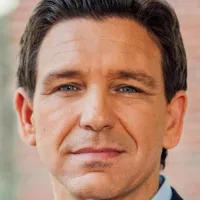
Ron DeSantis is an American politician who has served as...
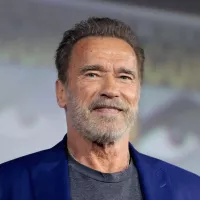
Arnold Schwarzenegger is an Austrian-American actor businessman former politician and...

Benjamin Bibi Netanyahu is a prominent Israeli politician and diplomat...
Trending

Crystal Dunn also known as Crystal Alyssia Soubrier is a prominent figure in American professional soccer She showcases her versatility...
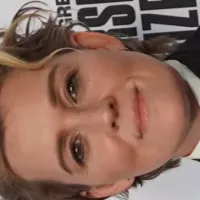
3 months ago Brandi Carlile releases distinct album 'Returning To Myself', explores themes of solitude.

4 months ago Silver Soars Above $50 Amidst Economic and Geopolitical Turmoil: A Four-Decade Peak
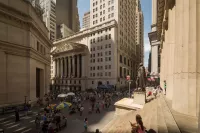
8 months ago Stock Market Climbs Amidst Moody's Downgrade and Debt Concerns: Key Takeaways

2 months ago Bitwise Launches XRP ETF Amidst Market Activity; XRP Staking Explored.

10 months ago Milo Manheim and Liz Gillies bond in Little Shop of Horrors, extend run.
Popular

Thomas Douglas Homan is an American law enforcement officer who...

William Franklin Graham III commonly known as Franklin Graham is...

XXXTentacion born Jahseh Dwayne Ricardo Onfroy was a controversial yet...

Jupiter is the fifth and largest planet from the Sun...

Kristi Noem is an American politician who has served as...

Instagram is a photo and video-sharing social networking service owned...
